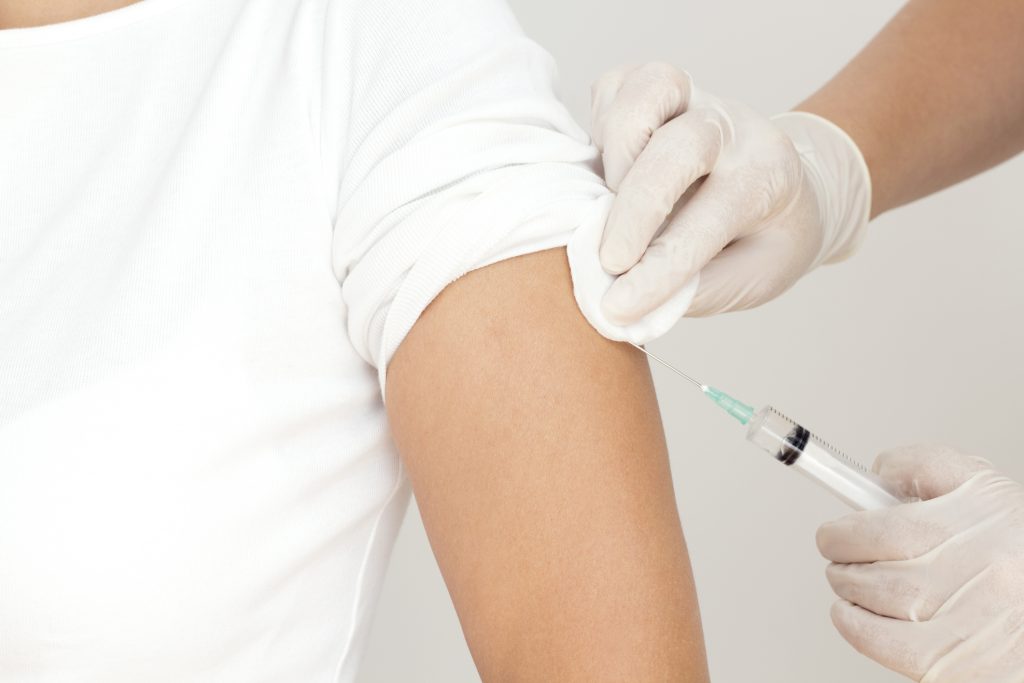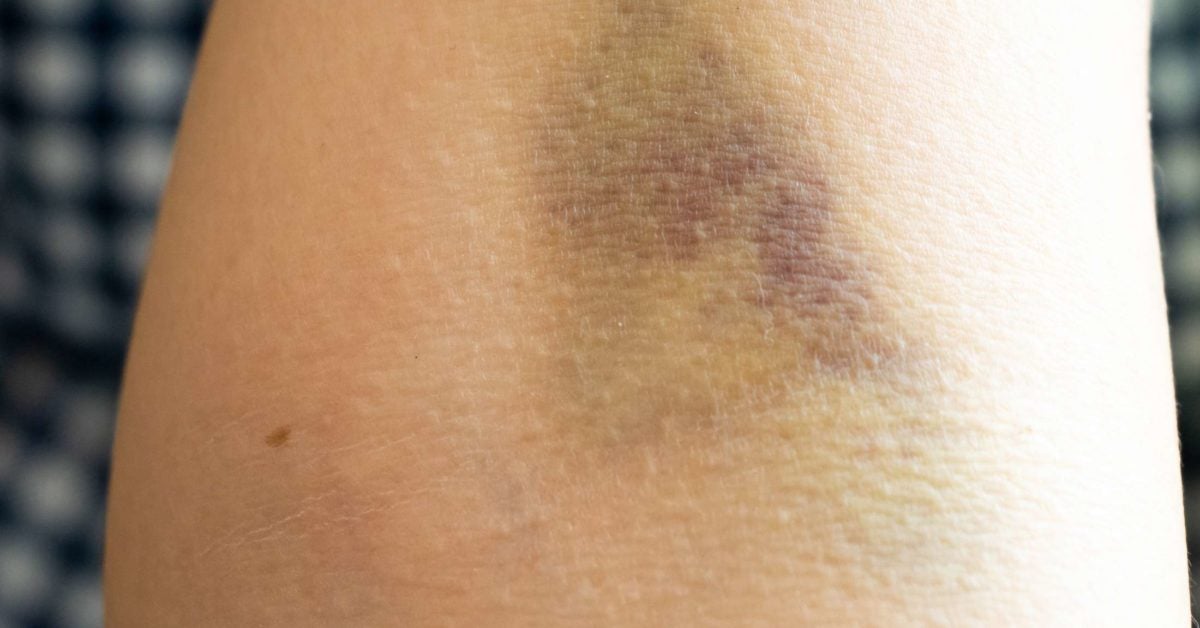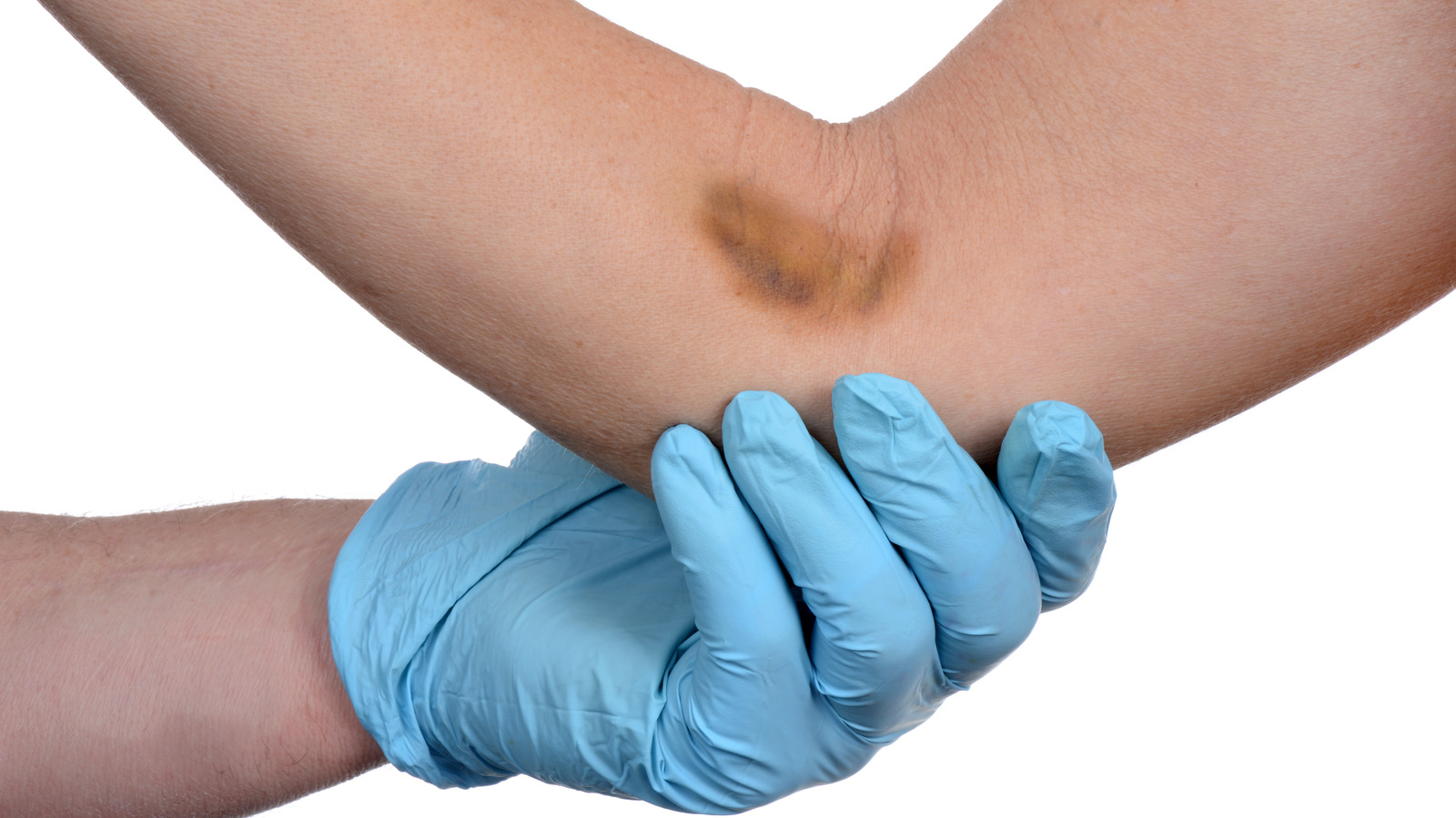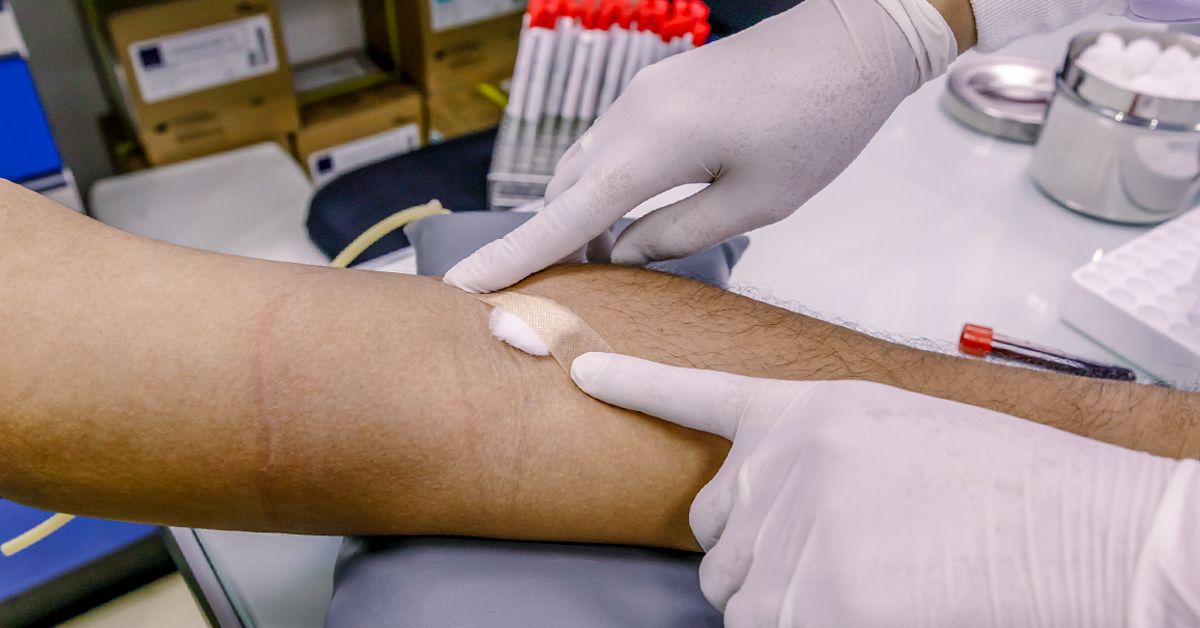Bad Bruising From Blood Draw
Bad Bruising From Blood Draw - See your health care provider if you: Web getting blood drawn is a simple process, but the most common complication associated with it is bruising. A hematoma is similar to a bruise, but. Have a blood draw, surgery or another medical procedure. A bruise occurs when a blood vessel is damaged and blood escapes into the tissue under your skin. However, some people have disorders that cause them to bruise or bleed too easily. The who (world health organization) issues the recommendation to seek medical attention when any or several of the following symptoms occur: March 15, 2022 by rob c. It happens when an injury causes blood to collect and pool under the skin. Web causes of bruising and bleeding. Bruises typically change color as they heal, at first appearing red,. There’s no standard lifespan for bruises. As such, preventing them is always preferable. “big bruises last longer than smaller ones,” says dr. Have unusual bleeding, such as from the nose or gums. Both bruises and blood clots stem from problems with blood. Have a personal or family history of easy bruising or bleeding. Web bruising after a blood draw is typically harmless and doesn’t require treatment. A hematoma is similar to a bruise, but. Web bruises are a familiar and often unavoidable consequence of various activities, injuries, or medical procedures like blood. The pooling blood gives the skin a spongy, rubbery, lumpy feel. Here's when they can be concerning. Notice a lump form over the bruise, which may be a sign of pooling blood, also called a hematoma. Both phlebotomists and patients play an essential role in preventing bruising. How long do bruises last? See your health care provider if you: After your blood draw, applying pressure to the site is crucial for preventing excessive bleeding and promoting clotting. Platelets (blood cells that help in blood clotting), blood clotting factors (proteins largely produced by the liver and by certain cells that line blood vessels), and blood vessel narrowing (constriction). Web bruising after a blood. Web a blown vein is a vein that’s mildly injured during a blood draw or iv placement. Notice a lump form over the bruise, which may be a sign of pooling blood, also called a hematoma. Have unusual bleeding, such as from the nose or gums. Doctors do blood tests to find the cause of excessive bleeding. Bruising after drawing. Bruises occur when something damages small blood vessels in the skin. Web bruises are a familiar and often unavoidable consequence of various activities, injuries, or medical procedures like blood draws. It happens when an injury causes blood to collect and pool under the skin. Doctors do blood tests to find the cause of excessive bleeding. A large bruise can take. Have a personal or family history of easy bruising or bleeding. Less often, you inherited a bleeding problem from your parents. Web bruises from a blood draw can occur for several reasons: While a blown vein isn’t serious, it needs about 10 to 12 days to heal before your provider can use it again. It's made up of blood vessels. Both phlebotomists and patients play an essential role in preventing bruising. Even though there’s blood pooling underneath your skin, you won’t have any external bleeding unless your skin breaks open. Web a hematoma is more than just a big bruise. Have frequent, large bruises, especially if your bruises appear on your trunk, back or face or seem to develop for. Even though there’s blood pooling underneath your skin, you won’t have any external bleeding unless your skin breaks open. How long do bruises last? Three things are needed to help injured blood vessels stop bleeding: Bruising after drawing blood may occur for various reasons, including liver disease, certain medications, and vitamin deficiencies. Less often, you inherited a bleeding problem from. Have frequent, large bruises, especially if your bruises appear on your trunk, back or face or seem to develop for no known reasons Bruises occur when something damages small blood vessels in the skin. A large bruise can take up to three weeks to fully heal. A collapsed vein is a blown vein that has caved in, which means that. Individuals with certain medical conditions, such as hemophilia or thrombocytopenia (low platelet count), may bruise more easily due to impaired blood clotting mechanisms. Web have bruises that begin suddenly or seem to develop for no reason. Here's when they can be concerning. Have a blood draw, surgery or another medical procedure. Both bruises and blood clots stem from problems with blood. Bruises occur when something damages small blood vessels in the skin. Less often, you inherited a bleeding problem from your parents. But, if your bruises are large or accompanied by bleeding elsewhere, it could be a sign of a more serious. A hematoma usually is not a cause for concern. Everything you need to know. Have unusual bleeding, such as from the nose or gums. Your body's circulatory system is a wondrous thing. Your healthcare provider will typically apply pressure immediately after the draw, but it’s essential to continue this at home. The vein may be fragile or small. Doctors do blood tests to find the cause of excessive bleeding. Web bruises are a familiar and often unavoidable consequence of various activities, injuries, or medical procedures like blood draws.
Bad blood draw ten days later still bruised YouTube

Bruising after a blood draw when do symptoms turn into alarm signals

Bruising after a blood draw What to know South Florida Reporter

Bruise Types, Symptoms, Causes, Prevention & Treatment

Bruising after a blood draw What does it mean?

Bruising after a blood draw What does it mean?

Bruising on woman's arm after blood test Stock Image M330/0375

Is It Normal To Bruise After Getting Blood Drawn?

Bruise from my Blood Test Day 1 Yelp

Bruising After Blood Draw Why, What to Do, and Prevention
Bruising After Drawing Blood May Occur For Various Reasons, Including Liver Disease, Certain Medications, And Vitamin Deficiencies.
Web Even Though It Can Look Quite Terrifying, Bruising After Blood Test Is Rarely Dangerous And Will Fade Away After A Week Or Two.
Even Though There’s Blood Pooling Underneath Your Skin, You Won’t Have Any External Bleeding Unless Your Skin Breaks Open.
It Depends On Your Body And What Caused The Bruise.
Related Post: